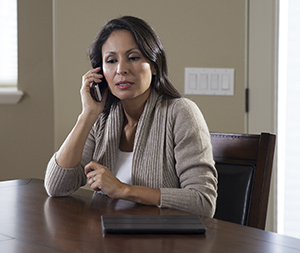Type 1 Diabetes and Your Child: Preventing Diabetic Ketoacidosis (DKA)
Diabetic ketoacidosis (DKA) is a serious complication of diabetes. DKA is a medical emergency. It can lead to coma or death. A child with DKA has:
-
High blood sugar (hyperglycemia)
-
An imbalance of chemicals in the blood (metabolic acidosis)
-
High levels of ketones in the blood and urine
Ketones are the waste product when the body breaks down fat for energy. This happens when there isn't enough insulin and the body isn't able to use sugar (glucose). Ketones can build up in the blood and then in the urine. Ketosis is a warning sign of DKA.
DKA is more common in children with type 1 diabetes. But it can also occur in children with type 2 diabetes.
If your child has high ketones and symptoms of DKA as listed below, call 911.
What are the causes of DKA?
The most common causes of DKA are:
-
Missed dose of insulin
-
Illness (flu, cold, gastrointestinal virus, or infection)
-
An insulin pump that is not working correctly
-
Insulin that has expired or has not been stored correctly
What are the symptoms of DKA?
Symptoms of DKA include:
If your child has high ketones in the blood or urine and symptoms of DKA, call 911.
When to check for ketones
Check for ketones in your child's urine or blood as instructed by their healthcare provider. In general, check for ketones when your child has any of the above symptoms, or when:
-
Your child's blood sugar is above 250 mg/dL for 2 tests in a row.
-
Your child is not feeling well or has diarrhea or vomiting. When your child is ill, check for ketones every 4 to 6 hours or as directed by your child's healthcare provider.
-
Your child is planning to exercise and blood glucose is 250 mg/dL or more. If ketone levels are low, your child may start mild- to moderate-intensity exercise. Your child should not do intense exercise until blood sugar levels are below 250 mg/dL. Intense exercise may make blood sugar levels go higher.
How to check for ketones
Ask your child’s healthcare provider to show you how to check for ketones at home. Ketone testing is most often done with urine test strips. Some blood glucose meters may also be used to check for ketones in the blood. Ask your child's healthcare provider for more information.
-
For babies or toddlers. You can put a cotton ball in your child's diaper to absorb urine. Then put the moist cotton ball onto a test strip to check for ketones. Follow the directions on the test strip package.
-
For older children. Follow the directions on the test strip package.
Preventing DKA
DKA can often be prevented. The best way to do this is to give your child insulin as directed. Be sure to follow your child’s treatment plan as given to you by the healthcare provider. When your child’s blood sugar is high, treat them right away based on the provider's guidelines. Remember that your child’s blood sugar can be harder to manage when they are sick. To be safe, check your child’s blood sugar more often when they are sick. Ask the provider for sick-day guidelines. This includes learning to adjust your child’s insulin dose safely. And always keep a “sick-day” box available. This box should include:
-
Ketone test strips
-
Thermometer
-
Cans of soup
-
Crackers
-
Juice with or without sugar
-
Flavored gelatin with and without sugar
-
Frozen juice bars with and without sugar (in the freezer)
Be sure to check the expiration dates on sick-day box items once a month. Replace items as needed.
When to call your child’s healthcare provider
 |
| Know when to call your child's healthcare provider. |
Call your child's healthcare provider right away if:
-
You're not sure how much insulin to give when your child is sick.
-
Your child's blood sugar is higher than usual or over 250 mg/dL and doesn't go down after getting insulin.
-
Your child's blood sugar level is lower than usual or less than 70 mg/dL.
-
Your child's blood or urine has ketones.
Call 911
Call 911 right away if you test your child for ketones and think they have DKA.
To learn more
For more information about diabetes, visit these websites: